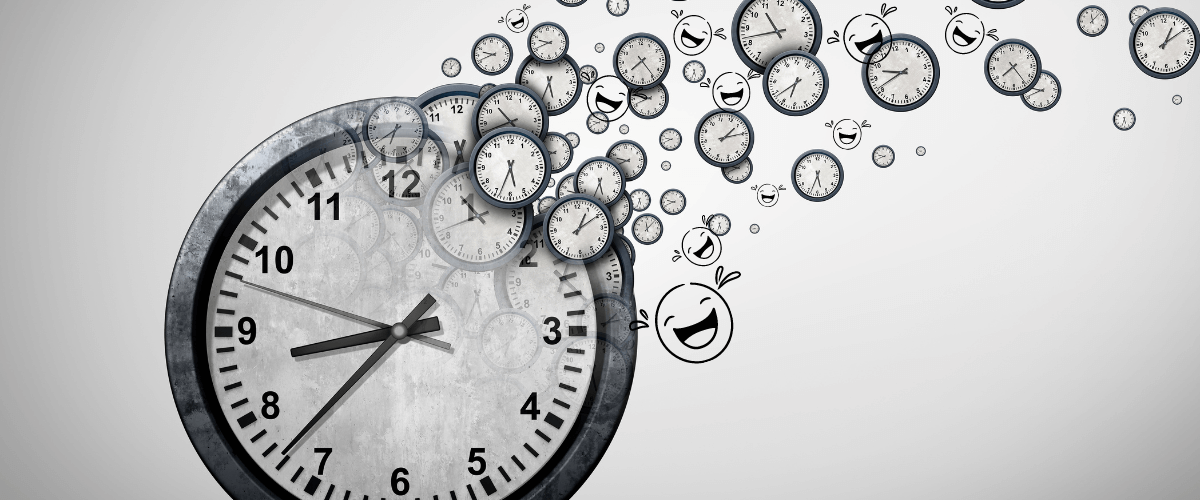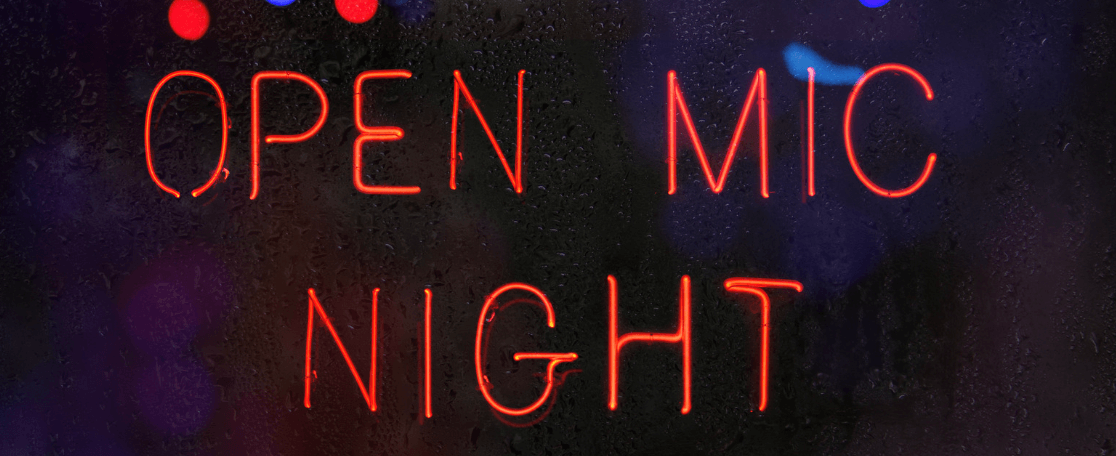COMEDY COURSE HOME | COMEDY BASICS | COMEDY WRITING | COMEDY PERFORMANCE | THE COMEDY BUSINESS | PRO COMEDIAN TIPS | HISTORY OF COMEDY | OTHER RESOURCES & MISC BITS

The world of comedy can be a confusing place with lots of terms to mean certain things! Here we hope to help guide you through that world with a non exhaustive list of some common terms in stand up!

Act-out: Physically acting out a scenario or character to enhance the humour of a joke.
Audience warm-up: The act of a comedian or performer energising the audience before a show to create a lively and receptive atmosphere.
Bad room: A venue with a difficult audience or unfavourable acoustics for stand-up comedy.
Bits: Short jokes, stories, or routines used by a comedian in their set.
Blue comedy: A style of comedy featuring explicit, vulgar, or sexual content.
Bombing: Failing to get laughs from an audience, resulting in an awkward and uncomfortable experience for both the comedian and the audience.
Booked: Being hired to perform at a comedy club, festival, or event.
Callback: Referring back to a previous joke or bit later in the set.
Catchphrase: A phrase that a comedian repeats often and becomes associated with their act.
Character comedy: A style of comedy where the comedian portrays a fictional character or impersonates a famous person.
Clean comedy: A style of comedy that avoids explicit or offensive content and is suitable for all ages.
Club owner: The person who owns or manages a comedy club and is responsible for booking performers.
Comic timing: The skill of delivering jokes and punchlines with the right pacing and rhythm to maximise their comedic effect.
Crowd work: Interacting with the audience and improvising jokes based on their responses.
Cut: Removing jokes or material from a set that aren’t working or aren’t appropriate for a specific audience.
Deadpan: A style of delivery where the comedian appears emotionless or expressionless while delivering humorous content.
Delivery: The way a comedian speaks, uses gestures, and projects their voice to deliver jokes and material.
Dirty: A style of comedy featuring explicit, vulgar, or sexual content.
Double entendre: A phrase that has two meanings, one of which is often sexual or suggestive.
Drop-in: A comedian who performs at a comedy club or show without being previously booked.
Dry humour: A subtle, sarcastic, or understated style of comedy.
Feedback: Constructive criticism or comments from other comedians or industry professionals on a performer’s act.
Feature: The second comedian to perform in a show, typically performing for a longer period of time than the opener.
Fill time: Improvising or telling jokes to fill time during a show if a comedian is running short.
Five-minute set: A short set performed by a comedian, typically used for auditioning or showcasing their material.

Flipping: Taking a joke or punchline in a completely different direction than expected.
Gag: A physical comedy routine or joke that relies on visual humour rather than spoken word.
Hack: A comedian who relies on tired or overused jokes and material. The material is also described as hack
Heckler: A person in the audience who interrupts or tries to engage with the comedian during their performance, often in a disruptive or negative way.
Headliner: The main comedian or performer in a show, typically performing for the longest amount of time.
Improv: Comedy where performers create a scene, story, or characters on the spot, without a script or rehearsal.
Inside joke: A joke or reference that only a select group of people will understand or find funny.
Irony: Using language or situations to create a humorous contrast between what is expected and what actually happens.
Joke theft: The act of one comedian stealing another comedian’s joke or material without permission or attribution.
Kill: To perform exceptionally well, eliciting a strong positive reaction from the audience.
Laugh track: Pre-recorded laughter played during a TV show or sitcom to simulate audience laughter.
Laughing stock: Someone or something that is widely ridiculed or mocked.
Leno test: A test used to determine whether a joke or routine is suitable for a mainstream audience, named after former late-night host Jay Leno.
Limerick: A short, humorous poem with a specific rhyming scheme.
Long set: A performance by a comedian that lasts for an extended period of time, often over an hour.
Mashup: Combining two or more unrelated jokes, stories, or characters in a single routine.
MC: Short for emcee, the person who hosts and introduces comedians at a comedy show or event.
Monologue: A long, uninterrupted speech or routine delivered by a comedian.
Netflix special: A comedy special filmed and released exclusively on the streaming platform Netflix.
Observational comedy: A style of comedy where the comedian makes humorous observations about everyday life and situations.
One-liner: A short, witty joke that usually consists of a single sentence.
Open mic: A comedy show or event where anyone can sign up and perform, regardless of experience or skill level.

Opener: The first comedian to perform in a show, typically performing for a shorter amount of time than the feature or headliner.
Over-the-top: A style of comedy that exaggerates or amplifies situations or emotions for comedic effect.
Panel show: A TV show or podcast format where comedians or guests discuss current events or topics in a humorous way.
Parody: A humorous imitation or satire of a popular song, movie, or TV show.
Punchline: The final part of a joke that delivers the surprise or humorous twist.
Roast: A comedic event where one person is singled out and humorously insulted by a group of comedians.
Sarcasm: A type of humour that uses irony to mock or convey a contrary message.
Satire: A type of humour that uses exaggeration, irony, or ridicule to criticise and comment on societal or political issues.
Set-up: The beginning part of a joke that establishes the premise or situation.
Showcase: A comedy event where multiple comedians perform short sets to showcase their material.
Sight gag: A comedic visual element or action that relies on physical humor rather than dialogue.
Sketch comedy: A style of comedy that consists of a series of short comedic scenes or sketches.
Slapstick: A type of physical comedy that involves exaggerated or violent actions and gestures.
Stand-up comedy: A type of comedy where a comedian performs jokes and routines while standing on stage and speaking directly to the audience.
Storytelling: A style of comedy that involves telling humorous stories about personal experiences or events.
Straight man: A comedic role where a performer sets up the jokes and plays the “straight” or serious character while the other performer delivers the punchlines.
Street joke: A joke that has been widely circulated and is not original to the comedian telling it.
Tag: A short addition or punchline to a joke or routine.

Three-beat or Rule of Three: A joke structure that involves a set-up, a second set-up that appears to be leading to a predictable punchline, and then a surprise twist for the actual punchline.
Timing: The skill of knowing when to deliver a punchline or pause for comedic effect.
Topical humour: A style of comedy that focuses on current events or news.
Verbal irony: A type of humour that uses words to convey a message that is opposite of what is actually being said.
Vulgarity: The use of offensive or obscene language or content in comedy.
Warming the bench: Waiting backstage
for your turn to perform.
Whimsy: A type of humour that is lighthearted, fanciful, or playful.
Wit: A type of humour that involves quick thinking, clever wordplay, or puns.
Working the room: Interacting with the audience and tailoring jokes or material to specific individuals or groups.
Writing session: A meeting or group session where comedians collaborate and work on writing new material.
Zinger: A witty, memorable one-liner that delivers a surprise or humorous twist.
There are of course loads of other terms not mentioned on this list! We’ll keep adding to this as we think of more, but hopefully this is a good starting place to help guide you through the world of comedy!

Learn more about the Comedy Basics here

Bookings for our Bar on the Southbank, SE1 Baby